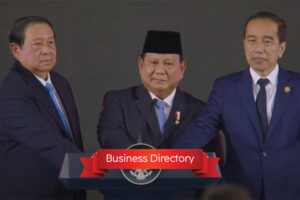The aviation industry in Indonesia is facing a new momentum following the Indonesian House of Representatives’ approval of the ratification of the Package 12 of Air Transport Services Commitments contained in the ASEAN framework in the services sector or the ASEAN Framework Agreement on Services (AFAS), on Wednesday, June 19, 2024. This decision, which will be enacted as a Presidential Regulation, not only has the potential to enhance the competitiveness of the national aviation industry but also opens new opportunities for investment and infrastructure development in this strategic sector.
The Twelfth Package of ASEAN Air Transport Services Commitments refers to a series of commitments and standards designed to improve the quality of services and operational efficiency in air transport within the ASEAN region.
The ratification was endorsed by all factions of the Indonesian DPR Commission V during a Working Meeting with the Ministers of Transportation, Law and Human Rights, Foreign Affairs, and Trade at the Parliament Complex on Wednesday, June 19, 2024.
With the adoption of this package, it is hoped that a more open and predictable environment will be created for players in the aviation industry, both domestic and international. This twelfth package builds upon previous packages that have been approved by the DPR.
“In the current position, Indonesia has completed the ratification of AFAS Protocol Package 4 through Package 8 via Presidential Regulation. Currently, for AFAS Protocol Packages 9, 10, and 11, they have been approved and are awaiting the enactment process of Presidential Regulation,” said Minister of Transportation Budi Karya Sumadi during his presentation.
Understanding AFAS
ASEAN countries agreed to the ASEAN Framework Agreement on Services (AFAS) for trade in services on December 15, 1995. This agreement was ratified by the President of the Republic of Indonesia through Presidential Decree Number 88 of 1995.
AFAS is a form of international trade cooperation aimed at achieving ASEAN economic integration in the services sector. AFAS functions to enhance market access within ASEAN. AFAS consists of three separate protocol groups: air transport services, financial services, and other services.
In air transport services, AFAS covers 13 sub-sectors: Aircraft Repairs and Maintenance; Selling And Marketing Air Transport Services; Computer Reservation Systems Services; Aircraft Leasing Without Crew; Aircraft Leasing with Crew; Airfreight Forwarding Services; Cargo Handling; Aircraft Catering Services; Refueling Services; Aircraft Line Maintenance; Ramp Handling; Baggage Handling; Passenger Handling.
AFAS Protocol Package 12 in Indonesia
Out of these thirteen sub-sectors, Indonesia has committed to six sub-sectors. Indonesia cannot avail of new commitments from other ASEAN countries without ratifying AFAS Protocol Package 12.
“Protocol Package Twelve in the field of air transport support services aims to provide investment opportunities and employment opportunities in the field of air transport support services,” explained Minister of Transportation.
He cited an example of this practice as technicians from Garuda Maintenance Facilities in Jakarta being able to provide direct consultation for aircraft repairs to Singapore Airlines technicians online.
Furthermore, the second mode is consumption abroad, which is services provided by service providers abroad to domestic consumers after these consumers move physically to the provider’s country.
Budi Karya cited an example, Sky Angkor Airlines, based in Cambodia, can repair its aircraft at Garuda Maintenance Facilities in Jakarta.
The third mode, commercial presence, involves service providers establishing direct operations in another country by opening branch offices or representations.
“For example, maintenance, repair, & overhaul (MRO) companies from Singapore and Indonesia can establish joint ventures with a maximum foreign ownership of 49%,” clarified Budi Karya.
Lastly, the fourth mode is movement of natural persons, which allows airlines to employ foreign workers with specific skills for a limited period by service providers.
He gave an example of Singapore Airlines Engineering Company sending experts to Indonesia for three months to train employees at a company such as JAS Aero Engineering.
Furthermore, the ratification of the Twelfth Package of ASEAN Air Transport Services Commitments aims to boost competitiveness by enhancing the quality and quantity of air transport support services and supporting efforts to revive the aviation industry post-pandemic, particularly in the air transport support services sector. This protocol can also serve as a basis for government recommendations to service providers for cooperation with ASEAN member countries.
Through AFAS cooperation, it is hoped that trade barriers in services among ASEAN member countries, such as foreign ownership restrictions, market access, licensing, and other regulations affecting service trade, can be eliminated.
The ratification of the Twelfth Package of ASEAN Air Transport Services Commitments by the Indonesian DPR is not just an administrative step but a strategic move to enhance Indonesia’s position in the global aviation industry. With higher standards and a more attractive investment environment, Indonesia is poised to play a more dominant role in the ASEAN and global aviation industry map. The public can anticipate significant improvements in flight services and long-term economic benefits for the country.





 20% off today. Whatsapp us!
20% off today. Whatsapp us!